Today, most of blades are polished by Hadori style or Sashikomi style. These are the two main ways in blade polishing.
On the other hand, there were other polishing styles in old days. We don't find such old styled polishings while we can read in books. Those polishing styles don't accord with todays art sword field, but some of them are still useful to study blades. We introduce also some of such extinct polishing styles.
Hadori style (the modern style, Kesho-togi)
Hadori is the work to make the white pattern along hamon. Kesho means cosmetic. This polishing style make up blade aesthetically. It is major in current art sword field.
The steel is black shining, and the hadori is very white. So the blade is attractive with the perfect contrast, and we can study the hamon under the hadori by proper lighting.
This polishing style was developed by a famous polisher in the early 20th century.
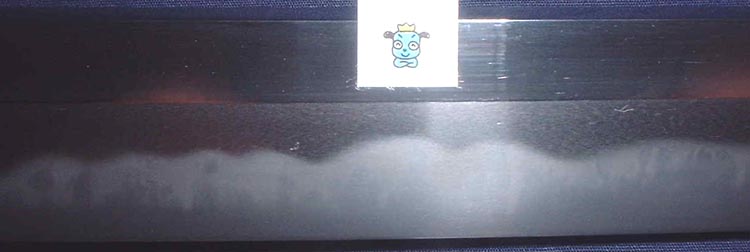
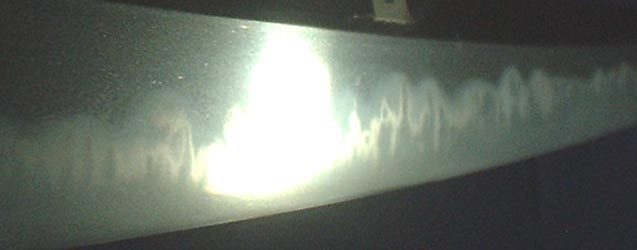
Sashikomi style (the classical style)
Sashikomi is the work to finish the blade with oil what includes fine powder of stone. The blade is not shining like the modern style polishing, but all the appearances come up honestly. This polishing style has been used on good blades for hundreds years.
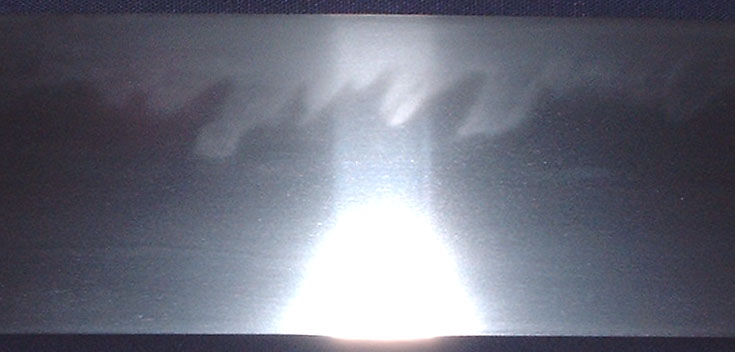
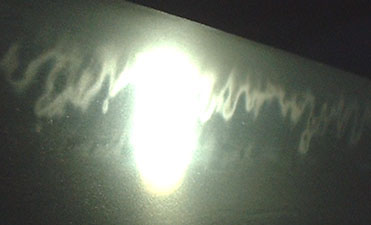
Hazuya finish
Hazuya is a specific stone to bring up hamon. In this style, the blade is completely finished with Hazuya. The stone is very fine and soft against the steel. All the blade surface is white and dim. It is very useful to study appearances of hardening effect, those are hamon, utsuri, yubashiri, and so. All the appearances come up honestly, but the steel layer doesn't come up very well. It is very good for beginners to study what hardening appearance is.
In any polishing styles, the kissaki of shinogi-zukuri blade is completely finished with hazuya stone. Because the hazuya finish is the best way to see blade quality. Therefore forebears said "study the kissaki carefully to know blade quality".
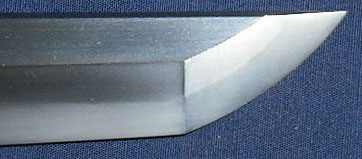
Jizuya finish
Jizuya is a specific stone to bring up the steel layer and clear the steel colour. In this style, the hamon area is finished with hazuya and other part is finished with jizuya. Jizuya stone is finer and harder than hazuya stone. So it can clear away the dim on the steel. This style is not taken the oil finish of Sashikomi polish. So it is called "water finish" in old days. The blade is clear and looks whiter than Sashikomi polish.
Migaki
This is the work to finish shinogi-ji and back rubbing with steel needle. The work makes a shining steel colour. Today, the work is done to get mirror finish on shinogi-ji and back. Such a hard rubbing is wrong. Some blades have poor steel on their shinogi-ji and on back. On such blades, mirror finishing can mask the view. But it is dishonest. We regret that we can't study the appearances in shinogi-ji and in the back. We want to see the truth, even if some flaw appears. Soft rubbing is necessary for that. No migaki is better than mirror finish.
Migaki of hard rubbing
Migaki of soft rubbing